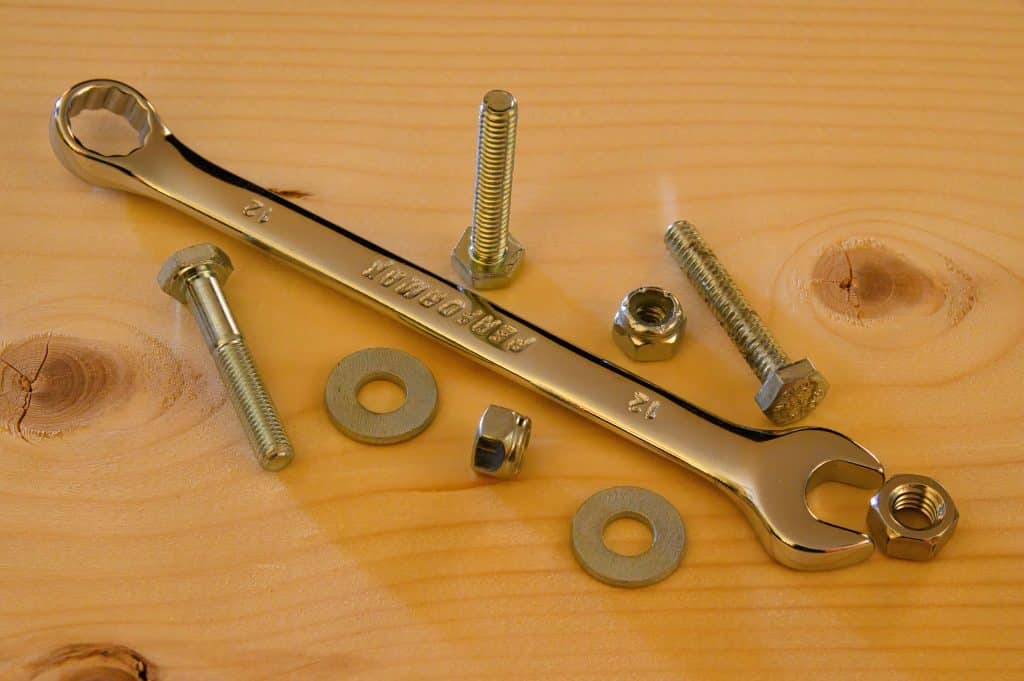When it comes to securing two or more objects together, bolts and nuts are the go-to fasteners for most applications. However, without the right type of washer, the joint can loosen over time due to vibrations or other factors. That’s where washer bolts come in – a type of fastener that combines the bolt, washer, and nut into a single unit, providing a secure and long-lasting joint.
As a trusted wholesale distributor of fastenings for over 65 years, Fastening Specialists is your go-to source for all things related to securing objects together. We understand that choosing the right type of fastener can be overwhelming, with so many sizes, materials, and designs available. That’s why we offer a wide variety of washer bolts to meet your specific needs, from standard zinc-plated steel to high-strength stainless steel and more.
Whether you’re working on a DIY project or a large-scale construction project, our experts are here to provide you with the best in product value, insight, code expertise, and order fulfillment. With Fastening Specialists, you can trust that you’re getting the highest quality washer bolts, backed by our decades of experience and dedication to customer satisfaction.
Understanding Washer Bolts
If you’re in the market for fasteners, you’ve likely come across the term “washer bolt.” But what exactly is a washer bolt, and how does it differ from a regular bolt? In this section, we’ll break down the components and terminology of washer bolts, as well as the different types of washers and bolts available.
Components and Terminology
A washer bolt is a type of fastener that consists of a bolt, a nut, and a washer. The bolt is the threaded component that screws into a material, while the nut is used to secure the bolt in place. The washer, which is placed between the bolt and the material, serves to distribute the load of the bolt and prevent damage to the material.
Washers come in a variety of shapes and sizes, including flat washers, split washers, and lock washers. Each type of washer is designed for a specific purpose, such as preventing the bolt from loosening or providing a smooth surface for the nut to tighten against.
Types of Washers and Bolts
There are many different types of washers and bolts available, each with its own unique features and applications. Some common types of bolts include hex bolts, carriage bolts, and lag bolts, while common types of washers include flat washers, split washers, and lock washers.
When it comes to selecting the right washer bolt for your project, it’s important to consider factors such as the material being fastened, the load requirements, and the environmental conditions. That’s where we come in. As a trusted wholesale distributor for over 65 years, we are specialists in the field of fastenings and can provide you with the best in product value, insight, code expertise, and order fulfillment.
In conclusion, understanding the components and terminology of washer bolts, as well as the different types of washers and bolts available, is essential for selecting the right fastener for your project. With our help, you can trust that you’re getting the best in quality and expertise for all your fastening needs.
Materials and Manufacturing
Common Materials
Washer bolts are available in a wide range of materials to suit different applications. Some of the most common materials include stainless steel, rubber, copper, brass, galvanized steel, aluminum, nylon 6/6, and plastic. Each material has its own unique properties that make it suitable for certain applications.
Stainless steel is a popular material for washer bolts due to its corrosion resistance and strength. Rubber washers are commonly used for their ability to absorb shock and vibration. Copper and brass washers are often used in electrical applications due to their conductivity. Galvanized steel is a durable and cost-effective option for outdoor applications. Aluminum is lightweight and corrosion-resistant, making it a good choice for aerospace and marine applications. Nylon 6/6 is a strong and lightweight material, while plastic washers are available in a variety of colors and are resistant to chemicals.
Manufacturing Processes
Washer bolts are manufactured using a variety of processes, including stamping, machining, and injection molding. Stamping is a common process for producing large quantities of washers quickly and efficiently. Machining is used for producing custom washers with complex shapes or tight tolerances. Injection molding is a process used for producing plastic washers in large quantities.
Design and Specifications
When it comes to washer bolts, there are several design and specification factors to consider. In this section, we’ll cover the most important ones.
Dimensions and Tolerances
The dimensions and tolerances of washer bolts are critical to ensure proper fit and function. The most common washer types are flat washers, lock washers, and finishing washers. These washers come in a variety of sizes, applications, and designs.
Flat washers, also known as Type A plain washers, are thin, flat, and circular general-purpose washers with a centrally located hole. They can be designed using imperial or metric dimensions. Standard imperial washers include SAE washers, for use with fine threaded nuts and bolts, and USS flat washers, for use with coarse threaded bolts.
Lock washers are used to prevent nuts and bolts from loosening due to vibration or other forces. They come in several types, including split washers, toothed washers, and conical washers.
Finishing washers are used to provide a clean and finished appearance to the surface of the bolt head or nut.
The outside diameter, inside diameter, and thickness of the washer are also important design factors to consider. These dimensions can vary depending on the bolt size and type of washer.
Standards and Quality
When it comes to washer bolts, it’s important to use high-quality materials that meet industry standards. The most common standard for washer bolts is F436, which specifies the requirements for hardened steel washers.
With our extensive product knowledge, we can help you find the right washer bolt for your application. We offer a wide range of washers, including USS flat washers, SAE flat washers, and F436 hardened steel washers, all of which meet industry standards for quality and performance.
In conclusion, when it comes to washer bolts, it’s important to consider factors such as dimensions, tolerances, standards, and quality.
Application and Usage
Installation Techniques
When it comes to installing a washer bolt, there are a few techniques to keep in mind. First, ensure that the bearing surface is clean and free of debris. This will help to ensure a tight seal and prevent corrosion. Next, determine whether a plain or lock washer is needed. A plain washer can be used to distribute load and prevent damage to the surface, while a lock washer can be used to prevent loosening due to vibration.
When tightening the bolt, it’s important to use the correct torque specifications. This will help to ensure that the bolt is secure and prevent over-tightening, which can damage the surface. Additionally, consider using a torque washer to help maintain the correct torque over time.
Industry Applications
Washer bolts are commonly used in a variety of industries, including construction, automotive, and aerospace. In construction, they are often used to secure structural components and prevent damage due to vibration. In the automotive industry, they are used to secure engine components and prevent leaks. In aerospace, they are used to secure critical components and prevent damage due to vibration and temperature changes.
Varieties of Washers
When it comes to fastening, washers are an essential component that helps distribute loads, prevent damage to surfaces, and improve the overall integrity of the joint. There are many types of washers available, each with unique features and benefits. In this section, we’ll explore some of the most common varieties of washers, including specialized washers and washer selection criteria.
Specialized Washers
Specialized washers are designed for specific applications and offer unique benefits. Some of the most common types of specialized washers include:
- Spring Washers: These washers are designed to provide a constant load or pressure on the joint, even when there is vibration or movement. They are commonly used in applications where there is a risk of loosening due to vibration, such as in automotive and aerospace industries.
- Split Lock Washers: Split lock washers are designed to prevent loosening due to vibration. They have a split in the washer that creates tension, which helps keep the bolt or nut from rotating.
- Plain Washers: Plain washers are the most common type of washer and are used in a variety of applications. They are flat and circular with a centrally located hole and are used to distribute force or correct a hole size.
- Fender Washers: Fender washers are larger in diameter than plain washers and are used to distribute force over a larger area. They are commonly used in automotive and marine applications.
- Countersunk Washers: Countersunk washers are used in applications where a flat surface is required. They are designed to fit into a countersunk hole and provide a flat surface for the bolt or screw head.
- Shoulder Washers: Shoulder washers are used to create a spacer between two surfaces. They have a shoulder that fits into a hole and a larger diameter washer that provides a flat surface.
- Belleville Washers: Belleville washers are designed to provide a high spring rate and are commonly used in applications where high loads are required. They are conical in shape and provide a high spring rate due to their geometry.
- External Tooth Lock Washers: External tooth lock washers are designed to prevent loosening due to vibration. They have teeth on the outside of the washer that bite into the surface and prevent rotation.
- Internal Tooth Lock Washers: Internal tooth lock washers are similar to external tooth lock washers, but the teeth are on the inside of the washer.
- C-Washers: C-washers are shaped like a C and are used to create a spacer between two surfaces. They are commonly used in automotive and industrial applications.
- Sealing Washers: Sealing washers are designed to provide a seal between two surfaces. They are commonly used in plumbing and automotive applications.
Washer Selection Criteria
Choosing the right washer for your application can be overwhelming, but our experts are here to help. As a trusted wholesale distributor for over 65 years, we are specialists in this field. We offer a wide range of washers in different materials, coatings, sizes, and designs to meet your specific needs. Here are some important criteria to consider when selecting a washer:
- Load Capacity: The load capacity of the washer should be equal to or greater than the load on the joint.
- Surface Area: The surface area of the washer should be large enough to distribute the load over a wide area.
- Material: The material of the washer should be compatible with the material of the joint and the environment.
- Coating: The coating of the washer should be compatible with the environment and provide corrosion resistance.
- Spring Rate: The spring rate of the washer should be appropriate for the application.
- SKU Names: The SKU names of the washer should be clear and easy to understand.
In conclusion, washers are an essential component in fastening and choosing the right washer for your application is important.
The team at fastening specialists provides advice and best use-cases, but always check with local building codes and engineers for correct usage instructions.

